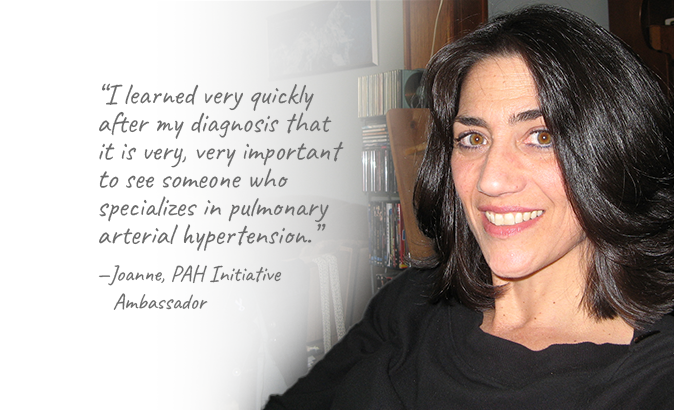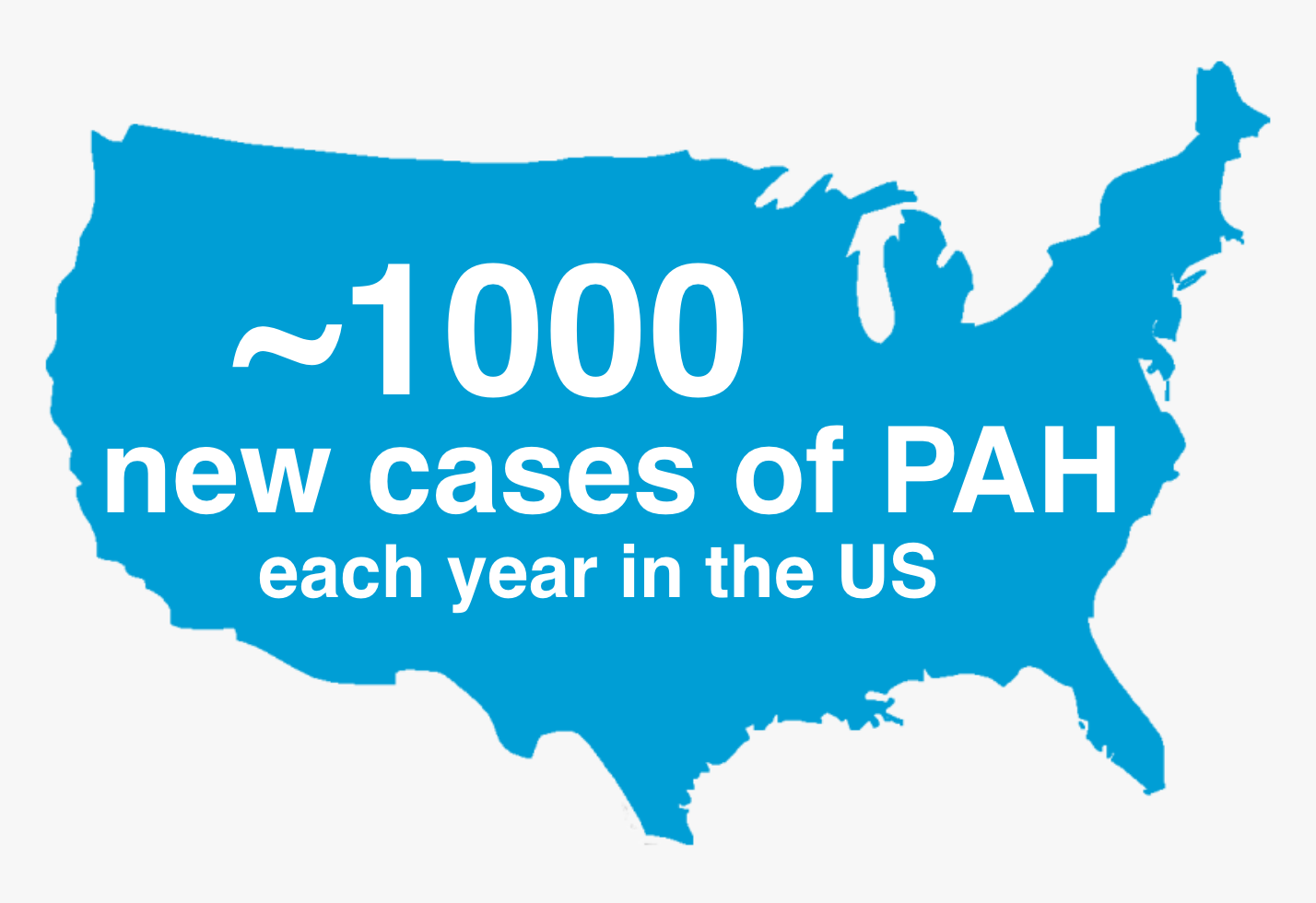What are some factors that can contribute to PAH?
Pulmonary arterial hypertension (PAH) can be caused or affected by many different things—like a gene mutation that can cause PAH to develop within families. This is called heritable PAH. Other factors than can contribute to someone developing PAH include:
- Heart defects
- Autoimmune diseases (like lupus, scleroderma, or rheumatoid arthritis)
- HIV
- Drug use (including methamphetamine or cocaine)
- Liver disease (like cirrhosis)

The cause of PAH is not always known
In many cases, doctors may not be able to find the specific cause of a person’s PAH. This is called idiopathic PAH, which means that PAH has developed for unknown reasons.
How common is PAH?
PAH is rare, so specialized care is needed
Only about 1000 new cases of PAH are diagnosed every year in the United States. PAH is more common in women than in men.
PAH is chronic, and it gets worse over time. But life expectancy has been improving for people with PAH. In addition, treatment options and approaches to care, such as improving your risk status, continue to advance.
Because PAH is rare, not all heart specialists (cardiologists) and lung specialists (pulmonologists) are considered specialists in PAH. For this reason, people living with PAH should seek out a doctor who specializes in treating PAH.
Find a PAH Specialist
What’s the difference between PH and PAH?
You may hear healthcare providers say “PH” or “PAH.” What’s the difference?
Pulmonary hypertension (PH)
PH is a general way to describe high blood pressure in the lungs. PH can have many causes and is associated with many different diseases. Different types of PH are categorized into 5 groups by cause or related condition. Group 1 is pulmonary arterial hypertension (PAH).
Pulmonary arterial hypertension (PAH)
PAH is a specific type of PH. PAH describes high blood pressure that happens for a very specific reason: the blood vessels in your lungs have become narrow. PAH is a serious condition, but with early diagnosis and appropriate treatment, you might be able to improve your outcomes. PAH is also referred to as WHO Group 1 pulmonary hypertension.
Is there a cure for PAH? What can help?
Although there is no cure for PAH, medications and lifestyle changes may help reduce your symptoms and slow down the progression of the disease so that you can do daily activities without as many symptoms.

PAH calls for specialized care
No matter the cause of your PAH, it's important to find a PAH specialist who will customize a treatment plan that helps you manage your symptoms and be as active as possible.
Find a PAH Specialist